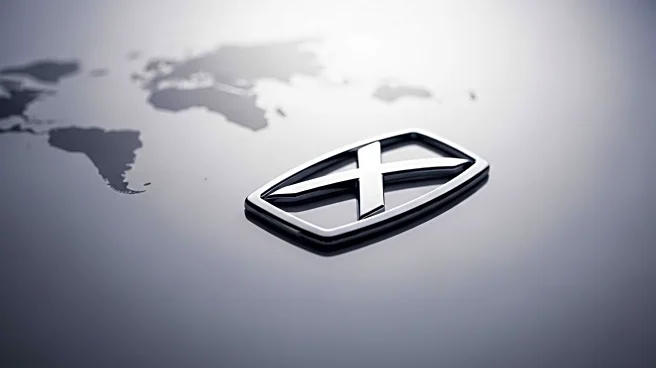What's Happening?
The United States has reduced tariffs on auto imports from the European Union to 15%, effective retroactively from August 1. This adjustment is part of a framework trade agreement established between the U.S. and the EU earlier this summer. The Department of Commerce and the Office of the U.S. Trade Representative released a document detailing these changes, which include exemptions for sectors such as aircraft parts and generic pharmaceutical drugs. The tariff reduction follows an executive order signed by President Trump, facilitating the adjustment of tariff rates for imports from economies with trade agreements with the U.S. The EU had previously lowered tariffs on American goods, enabling the U.S. to backdate the new auto charge.
Why It's Important?
The reduction in tariffs is significant for European car manufacturers, such as Volkswagen, Porsche, and Mercedes-Benz, which saw their shares rise following the announcement. This move is expected to enhance trade relations between the U.S. and the EU, potentially increasing the competitiveness of European carmakers in the U.S. market. The tariff reduction may also lead to lower prices for consumers and increased sales for European automakers, benefiting both industries and consumers. Additionally, this development reflects the ongoing efforts to strengthen economic ties and reduce trade barriers between major global economies.
What's Next?
The U.S. has indicated that the list of products affected by the tariff changes may be amended in the future. Stakeholders, including European car manufacturers and U.S. importers, will likely monitor these developments closely. The EU's legislative actions to lower tariffs on American goods suggest a continued commitment to reciprocal trade agreements, which may lead to further negotiations and adjustments in trade policies. The impact on the automotive industry will be observed as companies adjust their strategies in response to the new tariff rates.









